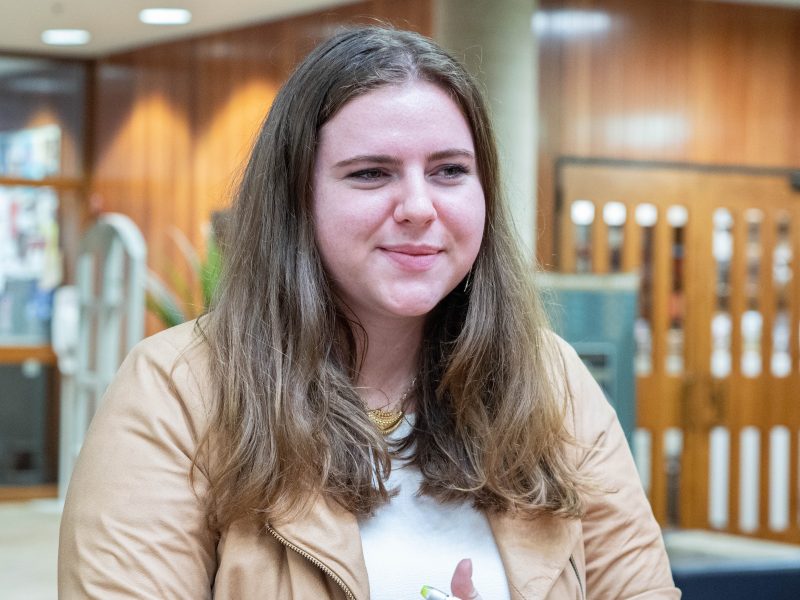Members of the Trinity community gathered on Oct. 10 in a preliminary meeting to discuss the future of the Coalition for Respect. The meeting was scheduled to determine student interest in the group as well as to brainstorm ideas promoting education on sexual assault.
The preliminary meeting followed the Coalition for Respect’s recent hiatus due to low student attendance. About 50 attendees discussed various issues surrounding the coalition, including New Student Orientation programming, campus climate and the future structure of the Coalition.
David Tuttle, dean of students and chairman of the Coalition, went to student groups such as the Greek Council, Student Government Association (SGA), the athletic advisory council, residential assistance, and student conduct board, gathering about 40 student names to invite to the preliminary meeting. Tuttle discussed the purpose of holding the unofficial meeting before bringing the Coalition of Respect back from its hiatus.
“Instead of saying to them come to this meeting Friday afternoon, I felt like we needed to do some advanced work to really kind of go back to the drawing board on what the coalition is and does, and we really needed the student voice in that,” Tuttle said.
For senior Hannah Braley, this was her first Coalition meeting. Braley attended the meeting because she feared student input might be discontinued from the Coalition without a large showing of student interest.
“I heard about it because there was talk of it being dissolved. It was because people weren’t showing up to the meetings for whatever reason, so a couple of my friends, and I pushed to get a lot of people who are passionate about sexual assault as a topic to come to the meeting,” Braley said.
At the meeting, Braley was especially concerned with sexual assault programming on campus.
“I feel like our programming right now isn’t really getting the job done. It’s also geared toward freshmen, which makes sense because that is a very vulnerable time, but I think we also need to have programming that goes throughout all of the college years,” Braley said.
Additionally, Braley and other students were concerned with how student programming during NSO was received by first-years and suggested alternatives.
“I did body project when I was in Greek life I did that during orientation. I think it’d be really cool if we got small groups that were led by peers that were trained in these kinds of areas and got to ask questions. If it’s in a smaller group and it’s with people you’re a little more comfortable with then it’s harder to not take it seriously,“ Braley said.
Cecelia Turkewitz, sophomore SGA chief-of-staff, attended the Coalition meeting as a representative of SGA. Turkewitz said that the first portion of the meeting was spent discussing how students wanted the structure of the Coalition to be moving forward. Students discussed whether they wanted to reorganize the Coalition to include student leaders or to restructure the Coalition as a student organization.
“The structure of that whether we want student ambassadors or if we want a president or how we want the organization to actually be run. I think that a student organization can only do so much I think we definitely need some sort of faculty member. That might not necessarily be [Tuttle]. We need someone that’s in our corner, but we also need someone that the school won’t prosecute for being in our corner,” Turkewitz said.
As of now, the Coalition will remain as a faculty-led entity with student input. Tuttle sent out an email to some students who attended, hoping to collaborate and create a sustainable structure for the Coalition.
“I did my summary of what I heard from the meeting, and then sent that to some students who came forward saying they wanted to have some leadership and involvement in moving this forward. So now they’re gonna kind of take what was discussed, take my notes, and take their own opinions on how to structure and get student interest and move this forward,” Tuttle said.
Sheryl Tynes, vice president for Student Life, hopes to foster an ally atmosphere on campus where all students feel included in the conversation about sexual assault.
“We’ve talked a lot about women’s issues and sexual assault and dating violence, and we talk almost nothing about how we can work with young men to address these things without making them feel defensive. They’re not always the perpetrator sometimes they’re the survivors, and they have to be welcomed to the table because we need their perspective on things, right? We need to understand and we need to know they’re our allies,” Tynes said.
Tynes is also hopeful that faculty and student conversations will lead to more impact on the campus culture surrounding sexual assault.
“We’re trying to figure out the best mechanisms and facilitate honest conversations and deep thinking. I think that’s the hope,” Tynes said.
Simone Washington, junior and second-year Coalition member, is excited to see the group grow and believes the group has the potential to influence campus culture on sexual assault.
“I think letting students have reign over what happens on this campus in regards to sexual assault is a really powerful thing. The ability to shape policy around something as impactful as being sexually assaulted is incredible,” Washington said. “I think given the sheer amount of students present at the meeting. I think there is real potential for this group to be something substantial. It’s less impactful now than it should be. The fact that it was on the verge of being dissolved I think is unacceptable.”







